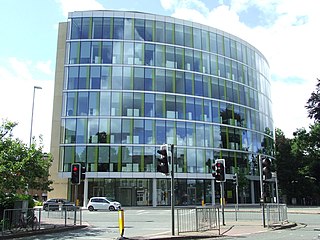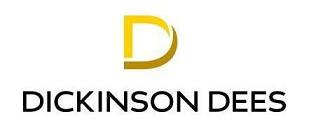Business is the practice of making one's living or making money by producing or buying and selling products. It is also "any activity or enterprise entered into for profit."

A partnership is an arrangement where parties, known as business partners, agree to cooperate to advance their mutual interests. The partners in a partnership may be individuals, businesses, interest-based organizations, schools, governments or combinations. Organizations may partner to increase the likelihood of each achieving their mission and to amplify their reach. A partnership may result in issuing and holding equity or may be only governed by a contract.

A limited liability partnership (LLP) is a partnership in which some or all partners have limited liabilities. It therefore can exhibit aspects of both partnerships and corporations. In an LLP, each partner is not responsible or liable for another partner's misconduct or negligence. This distinguishes an LLP from a traditional partnership under the UK Partnership Act 1890, in which each partner has joint liability. In an LLP, some or all partners have a form of limited liability similar to that of the shareholders of a corporation. Depending on the jurisdiction, however, the limited liability may extend only to the negligence or misconduct of the other partners, and the partners may be personally liable for other liabilities of the firm or partners.

A private limited company is any type of business entity in "private" ownership used in many jurisdictions, in contrast to a publicly listed company, with some differences from country to country. Examples include the LLC in the United States, private company limited by shares in the United Kingdom, GmbH in Germany and Austria, Besloten vennootschap in The Netherlands, société à responsabilité limitée in France, and sociedad de responsabilidad limitada in the Spanish-speaking world. The benefit of having a private limited company is that there is limited liability.

A law firm is a business entity formed by one or more lawyers to engage in the practice of law. The primary service rendered by a law firm is to advise clients about their legal rights and responsibilities, and to represent clients in civil or criminal cases, business transactions, and other matters in which legal advice and other assistance are sought.
Gowling Lafleur Henderson LLP (Gowlings) was a Canadian and international law firm, with about 700 legal professionals in 10 offices in Canada and as well as London, Moscow, and Beijing. The firm offered legal support in business law, advocacy/litigation and intellectual property law.

A limited partnership (LP) is a form of partnership similar to a general partnership except that while a general partnership must have at least two general partners (GPs), a limited partnership must have at least one GP and at least one limited partner. Limited partnerships are distinct from limited liability partnerships, in which all partners have limited liability.
A Swiss association is a type of corporation in Swiss law. It is similar to the Anglo-American voluntary association. Unlike in Germany, a Swiss association does not need to be registered in order to obtain legal personality, but must be registered if it "conducts a commercial operation". An association can serve as a non-profit organization (NPO) or non-governmental organization (NGO) and this form is used by several Swiss sections of international NGOs such as Amnesty International, and the World Wildlife Fund, by business firms or by international organizations such as the Fédération Internationale de Football Association (FIFA). The form can also be used by political parties and alliances, such as trade unions.

A company, abbreviated as co., is a legal entity representing an association of people, whether natural, legal or a mixture of both, with a specific objective. Company members share a common purpose and unite to achieve specific, declared goals. Companies take various forms, such as:
Womble Bond Dickinson is a transatlantic law firm formed in 2017 as a result of a merger between UK-based Bond Dickinson LLP and US-based Womble Carlyle Sandridge & Rice, LLP. The combination followed a strategic alliance announcement made in 2016. The firm has 27 locations across the United States and the United Kingdom offering services in 12 different sectors.
There are many ways in which a business may be owned under the legal system of England and Wales.
Mishcon de Reya LLP is a British law firm with offices in London, Cambridge, Oxford and Singapore. Founded in 1937, it employs more than 1450 people with over 650 lawyers. It is regarded as forming part of the "Silver Circle" of leading UK law firms.
The Seven Sisters refers to a historical collection of seven law firms with offices across Canada, the majority of which have head offices in Toronto, Ontario.

Dickinson Dees LLP was a law firm of the United Kingdom that traded between 1975 and 2013.
Hill Dickinson is a British international commercial law firm headquartered in Liverpool, United Kingdom. With more than 200 partners and 950 staff, the firm operates from six UK offices and four overseas offices.
Wragge & Co LLP was a UK-headquartered international law firm providing a full range of legal services to UK and international clients. Wragge & Co merged with the London law firm Lawrence Graham in May 2014, forming Wragge Lawrence Graham & Co. in 2016, Wragge Lawrence Graham & Co merged with the Canadian firm Gowlings to become Gowling WLG.
The legal services sector of the United Kingdom is a significant part of the national economy; it had a total output of £22.6 billion in 2013, up from 10.6 billion in 2001, and is equivalent to 1.6% of the country's gross domestic product for that year. The sector has a trade surplus is £3.1 billion in 2013 and directly employees 316,000 people, two-thirds of whom are located outside London. The UK is the world's most international market for legal services. It allows virtually unrestricted access for foreign firms, resulting in over 200 foreign law firms with offices in London and other cities in the UK. Around half of these are US firms, with the remainder mainly from Europe, Australia and Canada. The UK legal market has a strong global position due to the popularity of English law. Some 27% of the world's 320 legal jurisdictions use English Common law.
Kennedys Law LLP is an international commercial law firm specialising in insurance, dispute resolution and advisory services. In 2019/20 it increased total global revenue by 9% to £238 million. UK turnover increased by 9.7%, and revenue growth was supported by a 7% increase in the number of fee-earners worldwide, taking global headcount to 2,500+. It has offices in Argentina, Australia, Belgium, Bermuda, Brazil, Chile, Colombia, Denmark, France, Hong Kong, Ireland, Israel, Mexico, New Zealand, Oman, Peru, Singapore, Spain, the United Arab Emirates, the United Kingdom and the United States.
Gowling WLG is a multinational law firm formed by the combination of Canada-based Gowlings and UK-based Wragge Lawrence Graham & Co in February 2016, in the first multinational law firm combination co-led by a Canadian firm. Gowling WLG ranks at number 16 in The Lawyer UK 200 2019. On the list of largest law firms by revenue, Gowling WLG ranked as the highest revenue producing firm in Canada and 74th in the world (US$587,140,000) in 2017.



